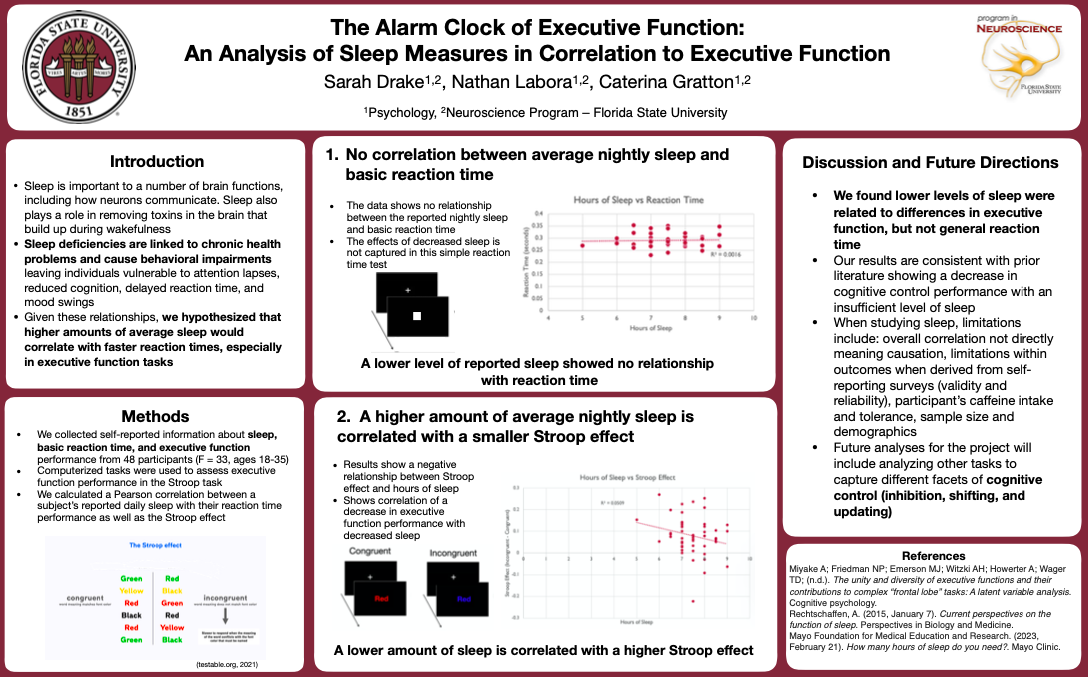Research Symposium
24th annual Undergraduate Research Symposium, April 3, 2024
Sarah Ann Katherine Drake Poster Session 1: 9:30 am - 10:30 am /87

BIO
My name is Sarah Drake and I am currently a senior at Florida State University. I am studying Psychology + Chemistry and have a passion for Neuroscience. I was born and raised in Tallahassee, Florida and from a young age knew I was interested in studying Science and Psychology at Florida State. I plan on going to graduate school and earning my PhD in either Psychology or Neuroscience. I hope to study the brain’s sleep interactions & functions in children with sleep disorders, such as Insomnia.
The Alarm Clock of Executive Function: An Analysis of Sleep Measures in Correlation to Executive Function
Authors: Sarah Ann Katherine Drake, Caterina GrattonStudent Major: Psychology, Chemistry
Mentor: Caterina Gratton
Mentor's Department: Psychology Mentor's College: College of Arts and Sciences Co-Presenters:
Abstract
Sleep is important to several brain functions, including how neurons communicate and removing toxins in your brain that build up while you are awake. Sleep deficiency is linked to chronic health problems and causes behavioral impairments leaving individuals vulnerable to attention lapses, reduced cognition, delayed reaction time, and mood swings. Given these relationships, we hypothesized that higher amounts of average sleep would correlate with faster reaction times, especially in executive function tasks. We collected information about sleep (from self-report surveys), basic reaction time, and executive function performance from 48 participants (F = #33 of females, ages 18-35). Computerized tasks were used to assess executive function performance for factors of inhibition (e.g., anti-saccade, stop-signal, and Stroop tasks), updating (e.g., keep track, tone monitoring, and letter memory tasks) and shifting (e.g., plus-minus, number-letter, and local-global tasks). We plan to relate each person’s sleep level with their average basic reaction time, as well as reaction times associated with inhibition, updating, and shifting tasks. Initial results show a relationship between a slower basic reaction time with a lower average nightly sleep time. A negative correlation between sleep amount and basic reaction time shows a reduction in overall behavioral performance. We also plan to look at the correlation between executive function dependent measure reaction times with average sleep across subjects to more specifically address the effect of sleep on executive function behavior.
Keywords: Sleep, Executive Functioning, Neuroscience, Cognition


